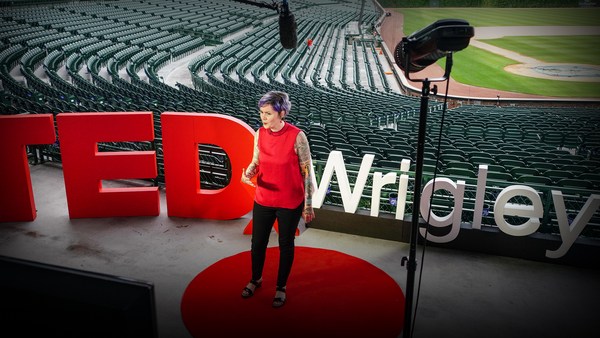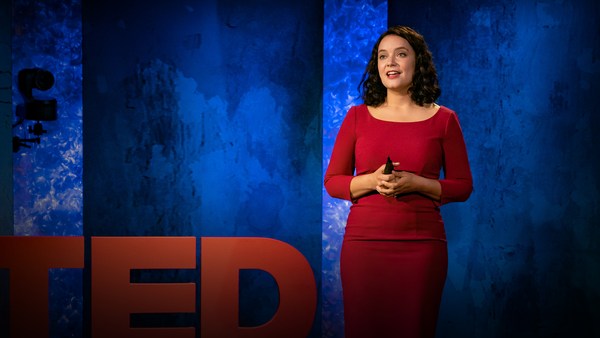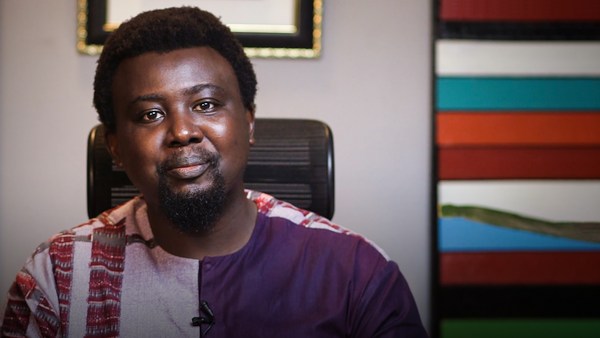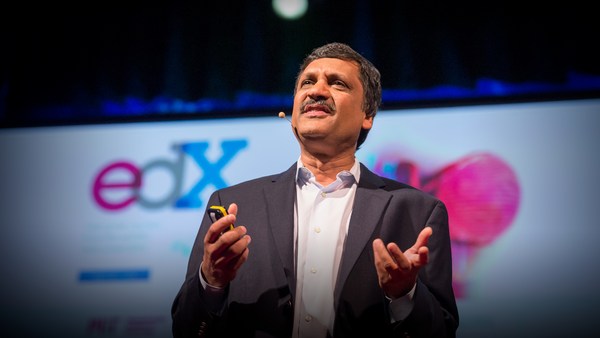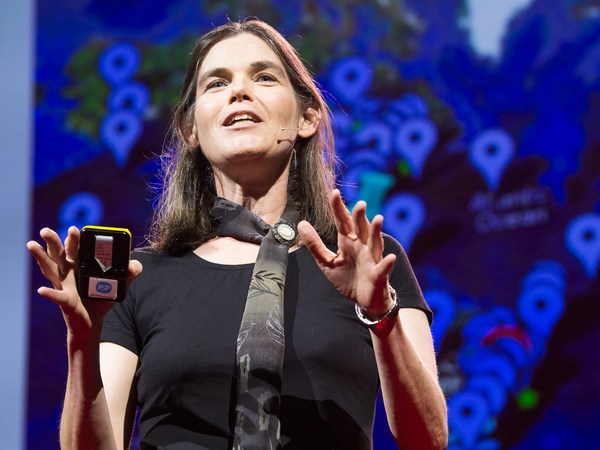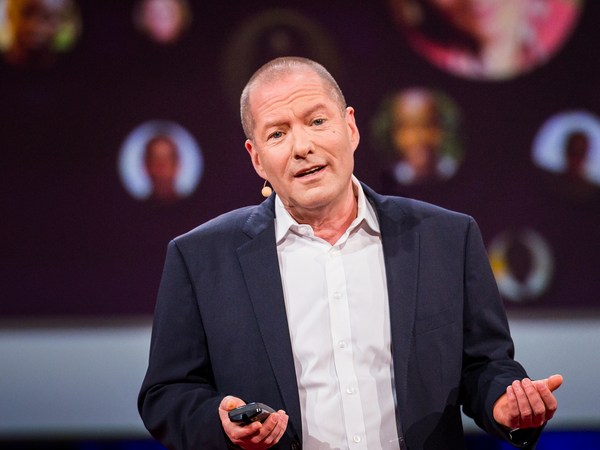It's graduation day at the small New England college where my dad taught. It's a burst of color and excitement. When I was little, he'd carry me up on his shoulders and I'd marvel at the pageantry. I loved the wizard-like academic robes that all the professors wore. My father explained how you could tell what degree someone had and the school they'd gone to, based on the color and design of their gown and hood. It was like a diploma, a credential that you could wear. I couldn't wait to have one of my own.
My dad taught biochemistry for decades and was one of those beloved professors. Graduation, for him, was a frenzy of thankful hugs and handshakes, eager introductions to parents. Countless careers in science and medicine were launched in his Bio 101 class, and it was clear he made a difference.
I suppose I inherited a love of teaching from my dad, and I planned to be a professor, just like him. I headed to grad school to do a PhD, studying microbiology and microchemistry. But along the way, my dad's path and mine started to diverge.
During long days in lab, I got impatient. I wanted to teach. I didn’t want to wait to graduate and do a postdoc, spend years navigating a treacherous job market. So I turned to the internet, which was breaking down the barriers to entry and removing the traditional gatekeepers in many established fields. From my kitchen table, I started recording tutorial videos, teaching the basics of chemistry using simple, hand-drawn diagrams. I put the videos on YouTube ... and people actually started watching them. First, a few folks, and then more, and then more. Thank-you emails poured into my inbox. I wasn't a professor yet, I hadn't even finished my PhD, but I was helping students all over the world get through their chemistry classes.
I got the sense that something big was brewing here. But my dad would hear none of it. When I explained that I was thinking about abandoning the traditional professorship route to explore this new world of online education, he exploded in anger. "Oh, Tyler, you'd have to be an idiot to think that anyone would care about this stupid YouTube thing." I shot back with a dig. I said, "Every single day, my videos teach 10 times as many students as you'll teach in your whole career." It would have really hurt, if he'd had any conception of what I was trying to describe.
But maybe he was afraid to think about the way his world, steeped in tradition, was on the brink of change. It used to be that students had one professor, the one standing at the front of the lecture hall. But increasingly, if that professor wasn't a good fit, students could go online and seek out videos from other educators to help them learn. It was like an online marketplace where students could essentially choose their own professor. And it was free. Some of these video creators were instructors from institutions, but others could be brilliant teachers who didn't even have a college degree. Students chose the teachers that help them learn best, and the most popular teachers rose to the top.
I wanted to bring my dad into this new world. I suggested we create a video series for intro biology. His lectures, crafted and perfected over decades, took terrifying subjects like the Krebs cycle and transcription and made them crystal clear and beautiful. They could help millions of students a day. "Why would any other college need a Bio 101 professor?" I joked. But it was something I'd seriously thought about a lot. What if you identified a few incredibly talented educators like my dad and gave them essentially limitless resources, content editors, and animators and production teams, and they were able to devote all day, every day, to making incredible, beautiful educational content. It seemed like this could fundamentally change a field where many professors all around the world were teaching essentially similar courses, particularly at the introductory level. But each professor rarely had the time and resources to go all in. Incredible education content felt like something that could scale, a key concept driving so many of the new revolutions in tech.
"You could be the world's biology teacher," I said. "Oh, you have to be an idiot to think that I'd want to be some kind of YouTube star." Ugh. I was furious.
And then, shortly thereafter, unexpectedly, he died ... right before I graduated from MIT. It upended my life. But there was a silver lining that felt slightly cosmic. He left me a little bit of money that allowed me to step off the academic path and try my own thing.
I poured myself into work, churning out videos day and night. And I also started to interact more with my viewers. And I learned that they were almost all folks who weren't served well by the rigid structure of traditional academia. Countless college students told me how they did all their learning from videos like mine. They attended class only three or four times during a semester, just to take the tests. Others were trying to switch careers in middle age, and they needed to take courses piecemeal. They needed half of this degree and a quarter of this one. A single dad writes me and says how he's trying to go to nursing school, to show his young daughters he can be something. He can't understand a word his professor says, but my videos get him through a critical class. Comments like his are often followed by an ominous ... “So why am I paying the school, and not paying you?”
I wonder why these people have to go through the motions of attending a class, when they are learning all the material on their own. Why can't they get course credit in other ways? Why isn't anyone paying attention to what these people need? I can't offer diplomas from my YouTube channel, but once there is a way for students to earn course credit no matter how they learned the material, in class or on their own, the online marketplace of different teachers and different learning approaches will explode. There will be serious competition for who could teach students the best.
Meanwhile, as I madly upload videos, my views go through the roof. Job offers start to come in. Random people start recognizing me on the street, an awkward "Hey, um .... Do you make YouTube videos?" It's followed by hugs and handshakes, selfies, and even occasional tears. Around this time, my career moves from the lecture hall to the laboratory. I joined a company focused on education for pharmaceutical and life-sciences companies. The CEO is bold and eccentric, and she wants to push the envelope and teach complex lab methods entirely in virtual reality.
Outside of academia, things move fast, and the stakes are different. The goal for me used to be a final exam grade. Now, it's a patient's health, a life-saving therapy.
For the team I joined, it was a rare chance to think deeply about lab instruction. In undergrad, I rarely knew what I was doing in labs. A couple of drops of this and a couple of drops of that, and poof -- it would turn red. Test tubes would break, a frazzled TA tried to guide 30 students at the same time. But VR can be a consistent, constantly vigilant one-on-one coach. A learner can practice activities over and over, until they truly understand what they're doing and why they're doing it. And students don't need an instructor or a TA -- the software does the teaching. Put on a VR headset, and you don't need a multi-million-dollar microbiology laboratory to teach microbiology.
And it's clear that academia isn't the only player that can provide high-quality learning even in advanced technical fields. Coding boot camps have received a lot of attention giving credentials that allow folks to transition into programming roles. But with VR, you could imagine companies offering biotech credentials and teaching lab skills needed to, say, manufacture cutting-edge cell and gene therapies.
When you look at all of these forces together, it's clear that real change is going to come in higher education. When I was up there on my father's shoulders, those colored robes at graduation represented discrete credentials, earned from classroom and research time at specific schools. Maybe the metaphorical academic robe of the future is more of a patchwork cape? A discussion class taken in person at MIT, an introductory content certification passed with the help of YouTube videos. A VR laboratory course from a company outside of academia. Graduation is unlikely to be a single, defined event. And learners, instead of institutions, will have the power to decide what sort of credentials they need and when and how they master the prerequisites.
The impact of COVID is likely to only accelerate this. Even the most prestigious schools are now giving credit for courses completed online. It's going to be tough to put that genie back into the bottle. And hopefully, the specter of these changes will force colleges and universities to double down on what they can uniquely provide. Maybe that's getting students to dive into research, or providing valuable one-on-one time with professors, fostering discussions and mentorship. MIT has always been on the forefront of innovation, and there's a unique opportunity here for it to lead academia into this new future.
But look, I know how hard this change is going to be. My father, who was a brilliant educator, couldn't see it or didn't want to see it. You would have to be an idiot to think that anything was going to change. But at the same time, he valued learning over all else, like many other great teachers. He used to say the focus of education should be learning, not teaching. These new paths of teaching, of certification, they're not trivial shortcuts. They'll help students master the same fundamental skills, just more effectively, more efficiently.
You know ... I think back to the first time I tried the virtual reality lab product I'd helped to build. A team of so many brilliant, talented people had worked on it for months. I slipped on the VR headset, and there I was, a lab bench in front of me. The focus was a fundamental microbiology method. It was probably one of the first things my dad learned when he was in grad school, and it was one of the first things that I had learned. I wondered, for a moment, what he would have thought if he could have seen this. I imagined, somewhat hopefully, of course, that he'd look around in the headset, grab a petri dish, sterilize his metal tools in the Bunsen burner until they glowed a bright orange, and maybe he'd say, with one of his trademark phrases, "Whoa ... This is pretty nifty. You would have to be an idiot if you can't tell ... this is the future of education."
Thank you.
